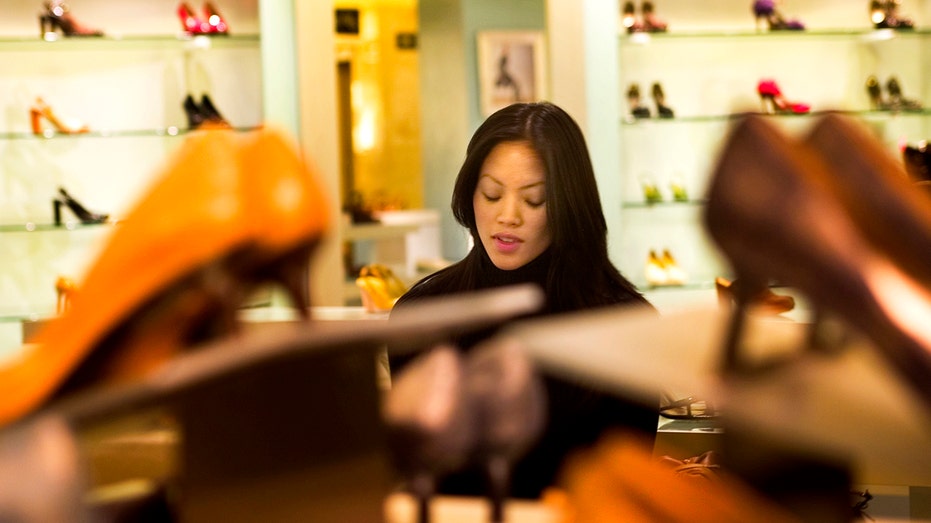US retail sales likely fell in July as automobile purchases weakened
Economists estimate sales excluding autos rose during a month when concerns about the Delta variant intensified
Spending at U.S. retailers likely fell in July, amid cooling auto purchases and signs of some pullback in consumer demand as Covid-19 cases tied to the Delta variant rose, economists say.
Economists surveyed by The Wall Street Journal estimate the Commerce Department will report Tuesday that retail sales — a measure of purchases at stores, at restaurants and online — fell by 0.3% last month compared with June. Excluding autos — a category where supply-chain issues have limited available inventory—sales are estimated to have risen by 0.2%.
Retail sales rose briskly in June, as shoppers directed spending toward services, such as dining out and traveling, and away from goods. That shift occurred as more Americans became vaccinated and state and local governments eliminated many Covid-19-related restrictions, some of which have now been reimposed with the recent rise in coronavirus cases.
WALGREENS’ NEW CREDIT CARD REWARDS SHOPPERS FOR HEALTHY PURCHASES
Pooja Sriram, U.S. economist at Barclays, said she expects increased services spending to continue, but that consumer spending will grow more slowly than earlier this year as the boost from federal aid to households wanes. U.S. consumer spending rose at a robust 11.8% annual rate in the second quarter, contributing strongly to economic growth during the period.
Retailers and other U.S. businesses are also facing uncertainty caused by the Delta variant, as the highly transmissible strain causes setbacks for some companies and data suggest some pullback in spending on items such as air travel and cruises. A University of Michigan survey showed a sharp drop in consumer sentiment during early August. Richard Curtin, the survey’s chief economist, said the decline was due "mainly from dashed hopes that the pandemic would soon end."

Spending at U.S. retailers likely fell in July, amid cooling auto purchases and signs of some pullback in consumer demand as Covid-19 cases tied to the Delta variant rose, economists say. Photo by Marvi Lacar/Getty Images
Peter Elitzer, chief executive at discount retailer Label Shopper, said he had noticed more customers donning masks recently while shopping, even before the Centers for Disease Control and Prevention reversed earlier guidance and recommended that vaccinated Americans resume wearing masks indoors where Covid-19 rates of infection are high.
Label Shopper has more than 60 stores located mostly in the Northeast and Midwest, and Elitzer said in the past two weeks he has noticed a bit of softening in sales at some locations, which he attributed to some customers being anxious about the Delta variant.
Still, he said demand at stores broadly has been holding up well and that the back-to-school shopping season had gotten off to a solid start resembling pre-pandemic patterns.
"The amount of anxiety that’s occurred since probably February of 2020, this is mild relative to that," he said of concerns over the Delta variant.
Many economists, while acknowledging the threat posed by the current rise in cases, aren’t expecting a significant slowdown in consumer spending.
Gus Faucher, chief economist at PNC Financial Services Group, said state and local governments, especially in parts of the South where Covid-19 case counts have risen most sharply, are hesitant to reimpose strict restrictions, which should allow consumers to continue to spend freely and visit stores.
Faucher said households’ savings stockpiles, a pickup in jobs added to the economy and low interest rates should also continue to encourage Americans to spend.
"You have a lot of strong positives for consumer spending growth, not just in July, but in 2021 and 2022," he said.
A Mastercard tracker of online and in-store spending shows that retail sales, excluding autos and gas, were up roughly 11% in July compared with the same month in 2020. Sales of apparel and jewelry each rose about 80% over the same period, while revenue at restaurants was up 61%, according to the tracker.
FLORIDA COSTCO LOCATION SPARKS SOCIAL MEDIA THREAT AGAINST CITY LEADERS
Such trends represent "passion-led spending" as people resume their pre-pandemic activities, said Bricklin Dwyer, Mastercard’s chief economist.
"We’ve seen people ready to move on with their lives and ready to continue to spend and get to whatever the new status quo looks like," Dwyer said. People are spending on items they "really feel good about because you’ve had a lot of time to think on what you want to do when the economy reopens," he added.
Rebekah Mandeville, owner of Mandeville Beer Garden in Sarasota, Fla., said sales in July were up 109% from July 2020 and 45% from July 2019.
Mandeville said demand has steadily ticked higher this year as vaccines circulated and people felt more comfortable going out. She said the beer garden, which has 34 taps and serves burgers, bratwurst and salads, has also benefited from having a large outdoor area where it can seat customers.
She said one of her biggest recent challenges has been finding available workers, a concern shared by many employers across the country. She estimates she lost three to four weeks’ worth of daytime revenue earlier this summer because she didn’t have enough staff to be open during the middle of the afternoon.
As for the Delta variant, Mandeville said she isn’t particularly worried. She added that she and many people she knows are vaccinated.
CLICK HERE TO READ MORE ON FOX BUSINESS
"I don’t feel the anxiety that one might be expected to feel when they read and hear about everything happening in Florida," she said, referring to the rise in cases in that state. "We have to carry on with life. That, I think, is the bottom line. I don’t think anyone is served by just trying to hide from this."




















